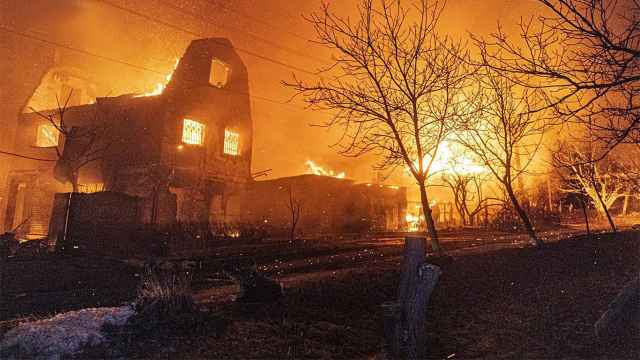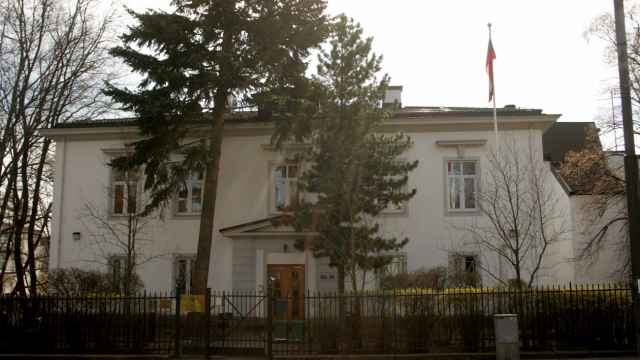“No peeing towards Russia.”
A new sign has been set up at one of the most frequently visited spots along the Norwegian-Russian border where visitors stop to take selfies. A Russian border pole is clearly visible on the opposite side of the creek.
The “No peeing towards Russia” sign on the road toward the village of Grense Jakobselv is considered a preventive message. The border line runs in the middle of a creek, and at low waters the distance from the opposite river bank is only a few meters.
Norway’s Border Commissioner Jens Høilund told The Barents Observer that he isn’t aware of any “specific events in recent times” that prompted the sign's appearance.
He said military border guards are often in this area to warn visitors before “such attempts turn into an incident.”
“The police, the border guards and the border commissariat will try to prevent incidents that could lead to violation of the agreement with Russia, including insulting behavior,” Høilund said.
He encouraged everyone who travels in the border areas to thoroughly familiarize themselves with current regulations.
The border commissioner made it clear that incidents would be reported to the police.
Located an hour drive northeast of Kirkenes, Grense Jakobselv is a popular destination for both locals and tourists. The narrow road on the Norwegian side of the border is at some places directly on the river bank. Signs along the road tell visitors how to behave.
The “No peeing towards Russia” sign, however, is new.
Norway’s dedicated law on the border with its eastern neighbor in the north is from 1950 and stipulates what citizens can and cannot do in the near-border areas. In §3, the law reads that no “offensive behavior along the border aimed at the neighboring state, or its authorities, are allowed.” Violations of this law can be punished with fines or up to three months in jail.
Asked about possible punishments for peeing, Høilund said that it is up to police to decide.
“In such cases, the likely [punishment] is a fine starting at 3,000 kroner (290 euros).”
A few years ago, border guards detained four people in the same area after they threw stones across the Russian border.
Last winter, a woman who put her left hand across the Russian border was fined 8,000 kroner (772 euros). The incident, captured by surveillance cameras, happened as she claimed the cairn at Treriksrøysa in the Pasvik Valley where Norway, Russia and Finland meet.
Both Høilund and Finnmark police chief Ellen Katrine Hætta said they are not aware of who put up the sign.
“However,” Høilund said, “it is set up in a place where tourists often stop, often the first stop after a long drive. It is likely that some have fallen for the temptation to urinate in the area.”
He noted that the area is under video surveillance.
Norway’s 197.7 kilometer-land border with Russia is likely the most peaceful of Russia’s external borders. Unchanged since it was agreed in 1826, the border is also a sign of peace; Norway is the only neighbor that Russia has not been at war with.
A Message from The Moscow Times:
Dear readers,
We are facing unprecedented challenges. Russia's Prosecutor General's Office has designated The Moscow Times as an "undesirable" organization, criminalizing our work and putting our staff at risk of prosecution. This follows our earlier unjust labeling as a "foreign agent."
These actions are direct attempts to silence independent journalism in Russia. The authorities claim our work "discredits the decisions of the Russian leadership." We see things differently: we strive to provide accurate, unbiased reporting on Russia.
We, the journalists of The Moscow Times, refuse to be silenced. But to continue our work, we need your help.
Your support, no matter how small, makes a world of difference. If you can, please support us monthly starting from just $2. It's quick to set up, and every contribution makes a significant impact.
By supporting The Moscow Times, you're defending open, independent journalism in the face of repression. Thank you for standing with us.
Remind me later.






